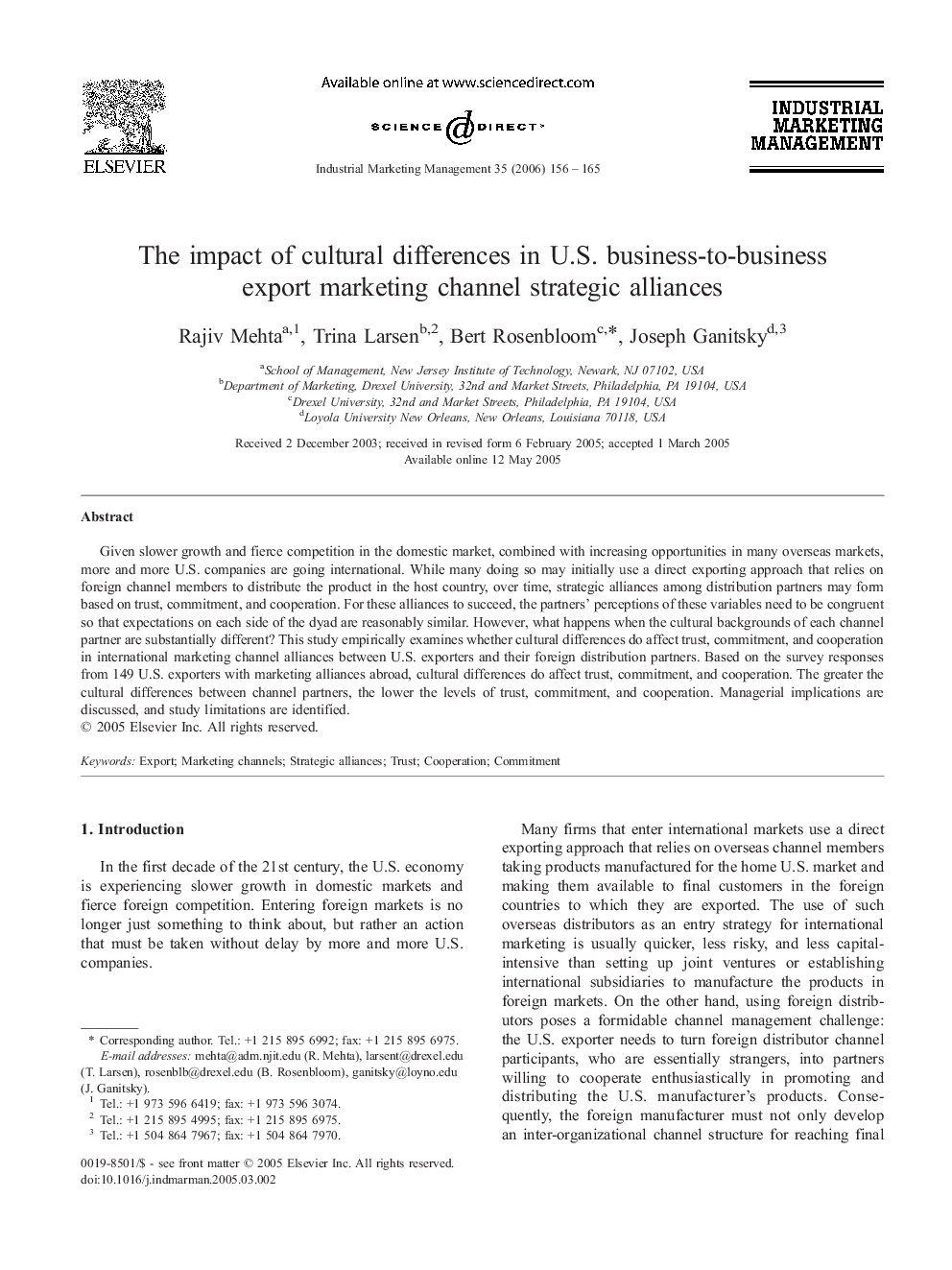| Article ID | Journal | Published Year | Pages | File Type |
|---|---|---|---|---|
| 1028704 | Industrial Marketing Management | 2006 | 10 Pages |
Given slower growth and fierce competition in the domestic market, combined with increasing opportunities in many overseas markets, more and more U.S. companies are going international. While many doing so may initially use a direct exporting approach that relies on foreign channel members to distribute the product in the host country, over time, strategic alliances among distribution partners may form based on trust, commitment, and cooperation. For these alliances to succeed, the partners' perceptions of these variables need to be congruent so that expectations on each side of the dyad are reasonably similar. However, what happens when the cultural backgrounds of each channel partner are substantially different? This study empirically examines whether cultural differences do affect trust, commitment, and cooperation in international marketing channel alliances between U.S. exporters and their foreign distribution partners. Based on the survey responses from 149 U.S. exporters with marketing alliances abroad, cultural differences do affect trust, commitment, and cooperation. The greater the cultural differences between channel partners, the lower the levels of trust, commitment, and cooperation. Managerial implications are discussed, and study limitations are identified.
